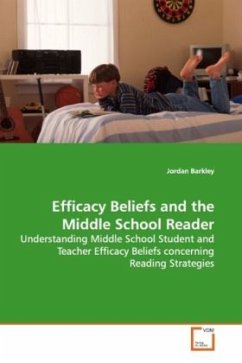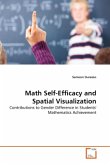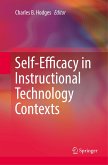The purpose of this study was to investigate the
relations between teacher and student efficacy
beliefs and outcome expectancies as they pertained to
four reading comprehension strategies and classroom
practices. Specifically, the study investigated
whether relations existed between sixth, seventh, and
eighth grade learners and their teachers efficacy
beliefs and outcome expectancies and whether student
perceived efficacy beliefs were predictors of reading
comprehension achievement as measured by a reading
comprehension subtest score on a state standardized
test.
Significant similarities were noted between teacher
and student efficacy beliefs concerning cooperative
learning. Further results indicated that when grades
six, seven, and eight were combined, student efficacy
beliefs about prior knowledge, self monitoring, and
graphic organizers were found to positively correlate
with reading comprehension achievement.
relations between teacher and student efficacy
beliefs and outcome expectancies as they pertained to
four reading comprehension strategies and classroom
practices. Specifically, the study investigated
whether relations existed between sixth, seventh, and
eighth grade learners and their teachers efficacy
beliefs and outcome expectancies and whether student
perceived efficacy beliefs were predictors of reading
comprehension achievement as measured by a reading
comprehension subtest score on a state standardized
test.
Significant similarities were noted between teacher
and student efficacy beliefs concerning cooperative
learning. Further results indicated that when grades
six, seven, and eight were combined, student efficacy
beliefs about prior knowledge, self monitoring, and
graphic organizers were found to positively correlate
with reading comprehension achievement.








